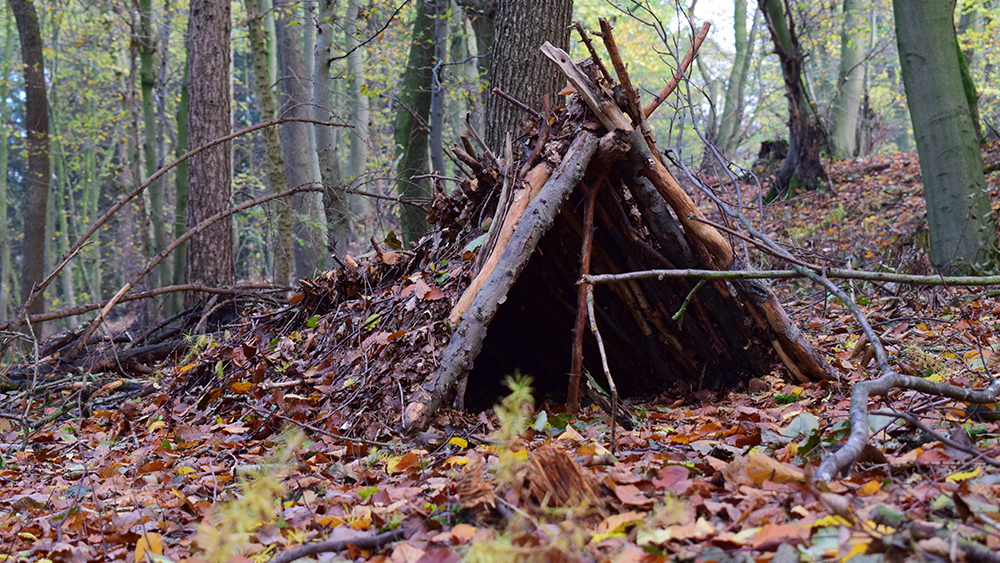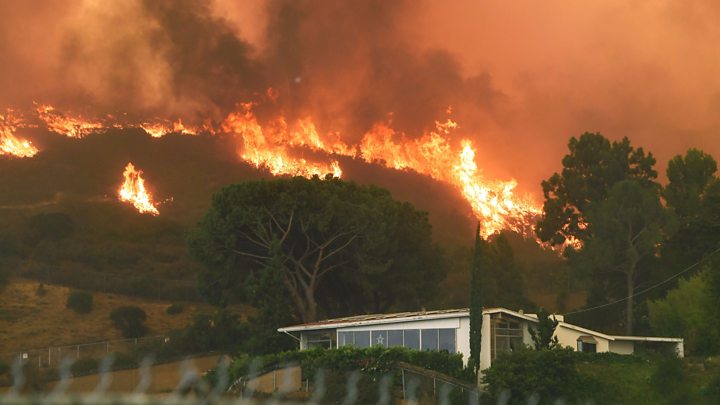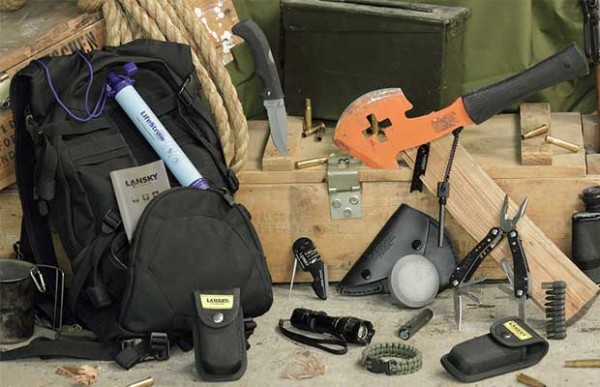
Preppers are always prepared for the worst: natural disasters, nuclear war, economic collapse or civil unrest.
If you're not a prepper yet, you can start your journey to preparedness and self-sufficiency by learning how to get ready before SHTF. (h/t to ModernSurvivalOnline.com)
Start prepping now before it's too late
To become a prepper, you must have a prepper mindset.
What does this mean? You must learn how to stay calm when SHTF, especially since panicking can endanger your life or those you love. Things may seem overwhelming at first but taking the time to plan and organize your tasks will help a lot.
Identify potential threats
Before you buy high-tech gear or start a home garden, you must first identify potential threats so you can prepare accordingly. Fortunately, many preps are basic and universal, and they can be useful in almost any disaster scenario.
Common threats may include:
- Civil war
- Riots
- Unemployment
- Natural disasters like avalanches, earthquakes, hurricanes or tornadoes
Once you've narrowed down the potential threats that you might face when SHTF, you can prepare accordingly.
Determine your specific vulnerability
Identifying potential threats is the first part of proper threat assessment.
Next, you must figure out your specific vulnerability to that threat. To do this, you need to learn how you fit into the circumstances under which the threat will occur. Finally, start prepping for potential SHTF scenarios.
Here are some suggestions on how you can prep for the potential threats:
- To prepare for civil war, start a survival stockpile with enough food and water for your whole family. Look for a group of people you can trust so you can bug in with them when SHTF. If you think it may be safer to bug out or evacuate, start preparing your bug-out location.
- Prepare for a riot by learning how to deal with mobs or avoid confrontations. Learn how to use a firearm so you can protect your family and your property too.
- If you ever face unemployment or a personal financial crisis, you should learn how to be more frugal. The problem may not be your income but your spending habits.
- When it comes to natural disasters, you must first fortify your home if you plan on bugging in. This isn't always possible, such as when you're facing an earthquake or a wildfire. Once the threat becomes too dangerous, it might be safer to evacuate or take shelter elsewhere. If you think you can safely bug in, set up a stockpile of the necessary supplies like food, water and survival gear.
Address your biggest problems
As a prepper, you should first try to solve your biggest problems. For example, if you're worried about home security you can devise and follow a list of new tasks, such as making sure all windows and doors are properly locked before going to bed at night or leaving the house.
For a long-term solution to this issue, get a firearm for self-defense and learn how to use your weapon by practicing at the range.
To prep for something like a natural disaster, fortify your home to prevent damage or loss of life. (Related: Adaptability and preparedness: 8 Important survival lessons from Antarctica.)
Install an in-home or exterior tornado shelter or prepare for flooding by raising dikes or other barriers around your property.
Prioritize your basic survival needs
Now that you have fortified your home again civil unrest of natural disasters, set up a stockpile with survival supplies.
Before SHTF, prioritize these basic survival needs:
Air
Do you know that you can only survive for a couple of minutes without air or oxygen to breathe?
You don't have to worry about the long-term availability of air in most situations, but some natural and man-made disasters can severely degrade air quality in the short term. Prevent asphyxiation by stocking up on facemasks so you can protect yourself in case of a fire.
Shelter
A well-made shelter will protect you from the rain and extreme heat or cold. Without shelter, you can die from hypothermia or abnormally low body temperature caused by exposure to extremely cold temperatures.
You can also be in danger because of heatstroke or hyperthermia if you are exposed to extremely hot areas with no shade and shelter.
Water
You can survive several days without drinking any liquids, but your health and condition will degrade the longer you go without water. You can also die from dehydration.
Clean drinking water is a very precious resource. While you're lucky enough to have access to clean running water, things may be different after SHTF.
Prepare for a water outage by stocking up on potable water. If storage space is an issue, prepare different methods to purify water and look for nearby sources of clean water.
Food
Before SHTF, stock up on food so you can feed your family if trouble brews in your city and it's too dangerous to go outside to buy supplies. Start by buying extra cans of food if you are on a tight budget. Keep this up until you have enough supplies for several weeks or months.
If your property is spacious enough for a home garden, grow these vegetables so you can provide your family with nutritious food:
- Basil
- Bell peppers
- Bush beans or green beans
- Carrots
- Cucumbers
- Lettuce
- Mint
- Oregano
- Peas
- Potatoes
- Radishes
- Spinach
- Summer squash
- Swiss chard
- Tomatoes
- Zucchini
Survival and prepping skills are more important than gear
When SHTF, your skills will be more important than the most expensive equipment in your possession.
Once you learn important survival skills like fire starting, foraging and shelter building, you can survive even if you lose your survival gear. After you learn various skills, you can invest in gear if you wish.
Here are some skills worth learning before disaster strikes:
- Navigation with a map and compass and knowing multiple ways to get in or out of your city and state without getting detected.
- A family survival and communication plan that your loved ones know about
- How to signal for help
- Basic first-aid skills, CPR and basic trauma care
- Fire starting for warmth and cooking
Most of these skills take some time to master, but you can learn them without spending any money by taking advantage of free resources like the local library or video tutorials.
You're several steps closer to being ready when SHTF when you have stocked up on the necessary supplies, learned the essential skills and devised an emergency preparedness plan. But this doesn't mean you can be complacent. Rotate your supplies to make sure nothing goes to waste in your stockpile.
Keep learning more skills that will help you survive when SHTF. Do routine checks on your property to identify any area for improvement and make the necessary changes immediately.
Times are hard, but preparing before disaster strikes helps improve your chances of surviving the next time something bad happens. It's never too late to become a prepper and learn how to be self-sufficient.
Sources include:
Please contact us for more information.





















